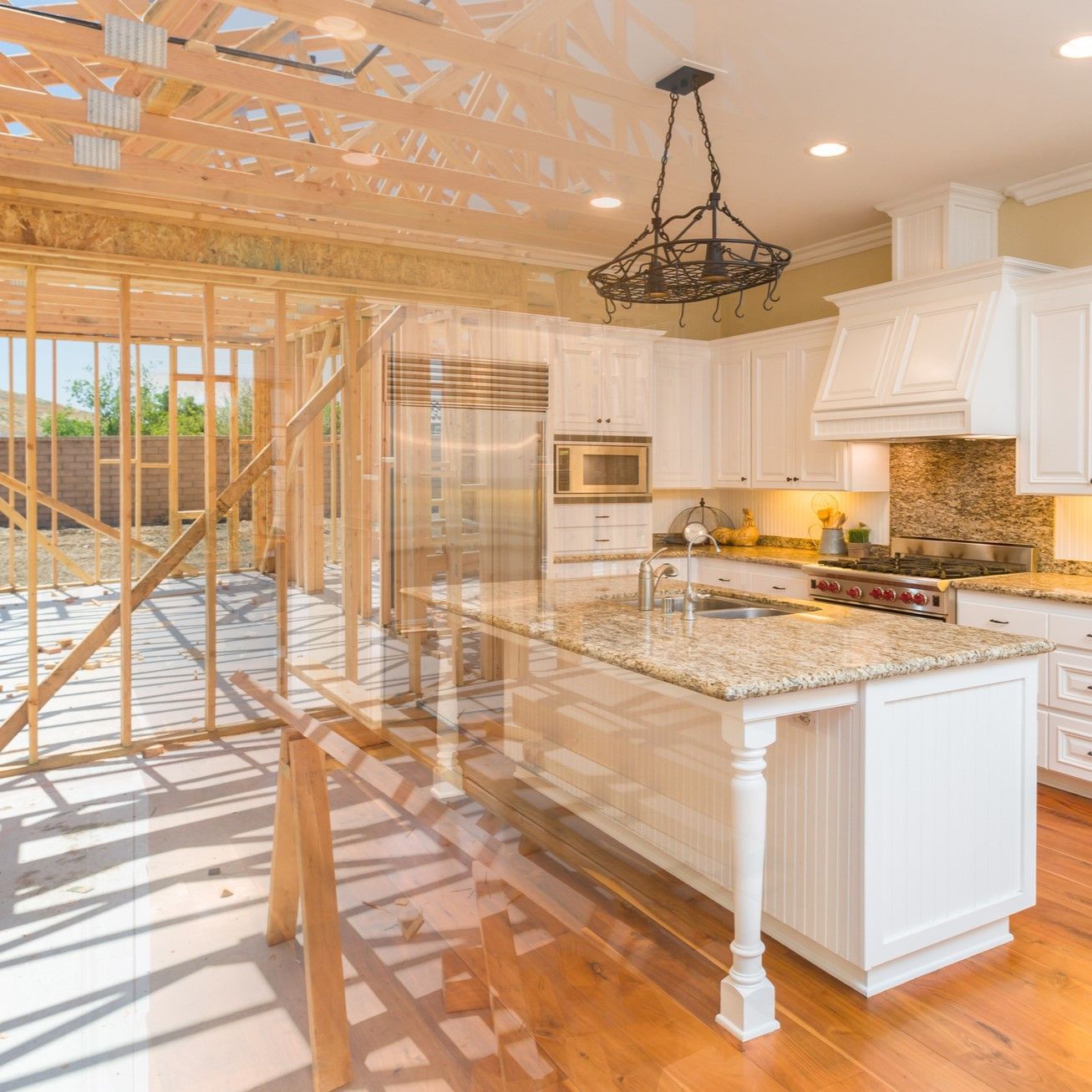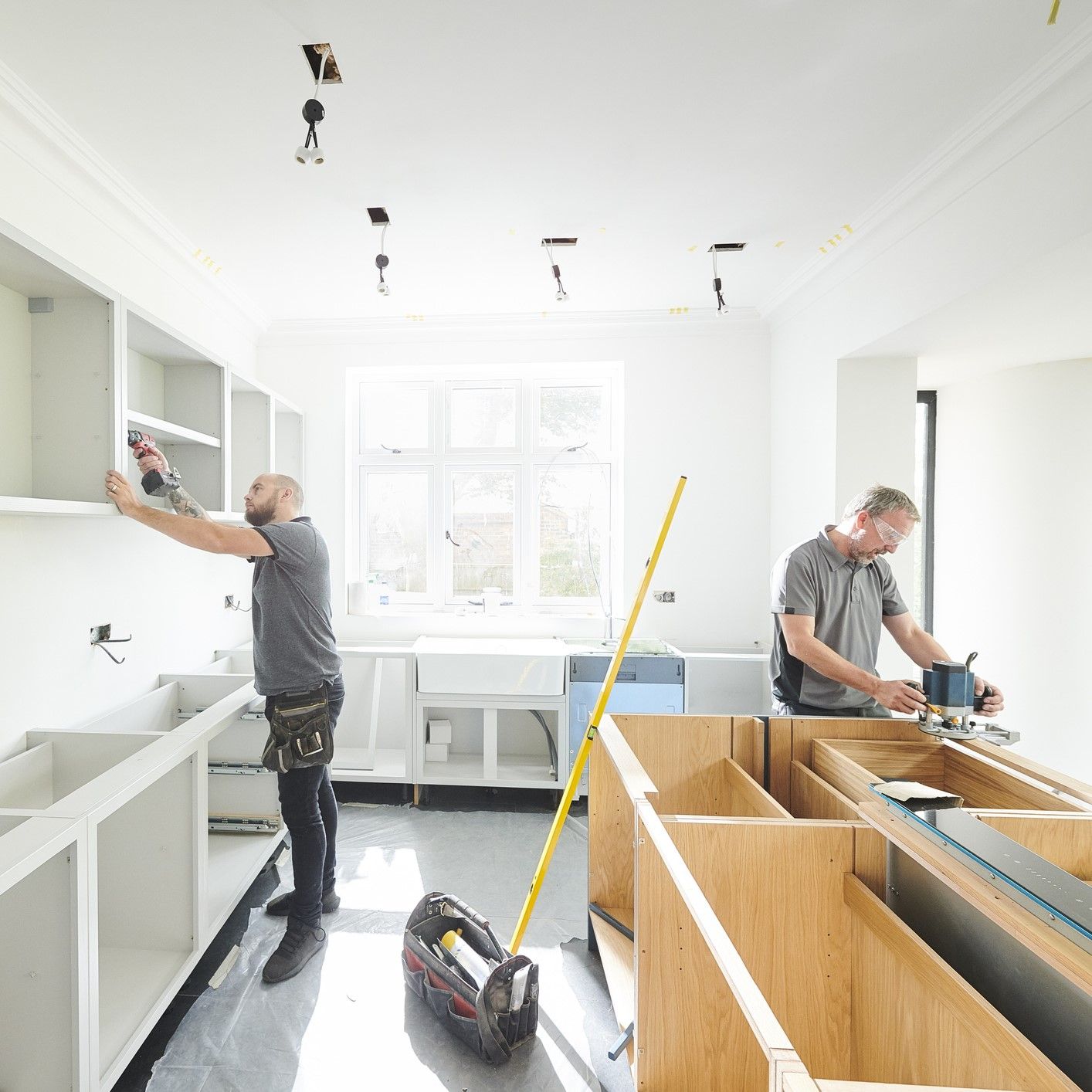How to Choose a Reliable Home Contractor

The following 14 steps will help you select a reputable house contractor:
- Make a thorough plan.
- Know the going rates for labor and supplies.
- Request references.
- Interview three contractors a minimum.
- Verify insurance and licenses.
- Be honest about your availability.
- Select the appropriate contractor for the job.
- Negotiate ground guidelines and sign a contract.
- Ensure that the applicable licenses are obtained.
- Consider making a deposit.
- Speculate on unforeseen expenses.
- Communicate with the contractor often.
- Keep record of receipts and lien releases.
- Wait until the project is finished before making the last payment.
Make a Specific Plan
Making a plan is the first step in any home renovation project. Even better, have plans drafted and finalized before hiring the General Contractor. A contractor needs to know exactly what you want to build so that they can provide an accurate estimate, or bid, on the project. While some contractors will give "ballpark" estimates, and try to get you to sign a contract with them then, that's not usually in the Homeowners best interest. Often, when the scope of work isn't finalized, there will be changes to the cost, and if you've already hired a contractor, their pricing could dramatically change as well. Work with your design team, engineer and architect, to dial in and finalize your plans first.
Know the Current Labor and Material Costs
Since the Covid pandemic, construction costs have skyrocketed. We've also seen jobs take longer than they did previously, because appliances and some materials are on backorder while supply catches up. According to the National Association of Home Builders, the cost of building materials has increased 35.6% in the past year and 19.2% over the previous 12 months. It's good for homeowners to know what to expect when going into a remodeling or home construction project. If your contractor is estimating costs way below their competitors, it may be that they aren't active in their field or that they aren't using current pricing in their estimates. The cheapest bid isn't always the best bid in the long run, as those prices may change once the contractor actually gets their real materials costs.
Check References
Use internet resources or ask around in your neighborhood and personal network for recommendations. Local Real Estate Agents, Architects, Designers, and fellow homeowners can be a great resource.
Conduct at Least Three Contractor Interviews
Get a proposal from each contractor based on your final plans. Most importantly, make sure the contractor is licensed and insured, and find out how long they have been licensed. Less experienced contractors are not inherently unqualified, but dealing with a seasoned expert can provide peace of mind during the job. Inquire about the contractor's timeframe, work schedule, and strategies for protecting your house and belongings while work is being done.
Verify Insurance and Licenses
You may usually confirm the specific criteria for a contractor license in your state by contacting the labor office there. You may also check their most recent insurance certificate and keep that in your records.
Be honest about your availability.
Contractors are in high demand, especially in the current economy. Depending on the contractor's availability, you may have to postpone the start of your house building project. The contractor should be up front about their availability at the onset of the relationship so you can plan your timeline accordingly, but don’t let a minor delay hinder your choice of contractor.
Selecting the Best Contractor for the Job
Choose a contractor that specializes in the type of work you want done to guarantee the project is executed correctly. Examine the company's previous work to evaluate whether it's a good fit for your house. If you have a hillside property, hire a contractor who is familiar and specialized in that type of construction. Looking for a full home remodel, but the contractor you’re considering seems to focus solely on bathrooms? Might want to think again… the size of the project is also a speciality. Some contractors aren’t used to organizing a full home remodel or new build, which takes special consideration to most efficiently complete the work. Likewise when it comes to designers and architects, if you have a mid-century modern home and all they’ve never worked with that style, you may want to find someone more suitable.
Sign a contract and agree on ground rules.
Everything you want accomplished should be listed in your contract, including dates, payment schedules, materials and model numbers, and who will furnish which items.
Typical contracts include the following:
- Business and contact details for the contractor.
- Information about the contractor's insurance and licensure.
- A full explanation of the work to be done, as well as the timetable and timing.
- Payment terms.
- Permits, what are needed and how they are handled.
- Process for dealing with conflicts and adjustments to the project.
- Both parties are protected by a termination clause.
Ensure that the necessary permits are obtained.
Large home improvement projects will almost certainly necessitate construction permits. Failure to get the requisite permissions may result in a violation and penalties. This might potentially present issues when selling your house.
You should expect to pay a deposit.
Before adding you to their schedule and guaranteeing the project proceeds forward after acquiring materials, your contract may need a down payment. You may also be able to negotiate the down payment amount and payment arrangements. Most states limit the amount of money a contractor can request as a down payment before work begins. You will most likely employ a deposit and final payment agreement, payments depending on the completion of the task, or time-based payments for the payment plan. Make certain that the terms of the payment arrangement are clearly stated in your contract.
Plan for Unexpected Costs
A cost estimate is only that: an estimate. Keeping house-building projects on budget is challenging, and any minor setbacks can increase the overall cost. Set aside 10% to 20% of your budget for unanticipated costs.
Speak with the Contractor Frequently
Communicate often with your contractor to ensure that everything is on track and that your project is developing as planned. A reputable contractor should provide frequent updates, and if you notice any possible difficulties, speak up right away. Any difficulties that go unspoken will be more difficult to resolve later.
Acquire Lien Releases and Receipts
A mechanic's lien or construction lien can be imposed on your home if your contractor fails to pay their subcontractors or suppliers. In severe circumstances, collection efforts may necessitate the sale of your house to satisfy the outstanding sum. Get a receipt for all payments and purchases made and the lien releases from all contractors involved.
Make the final payment only when the job is finished.
The final payment should be paid only once you are totally happy with the finished job and have received lien releases and receipts. This should be included in your contract and payment plan. Make sure that all other payments are on time and according to the payment plan as agreed. If the contractor has only completed 30%, don’t pay them 50%.
Recent Blog Posts








